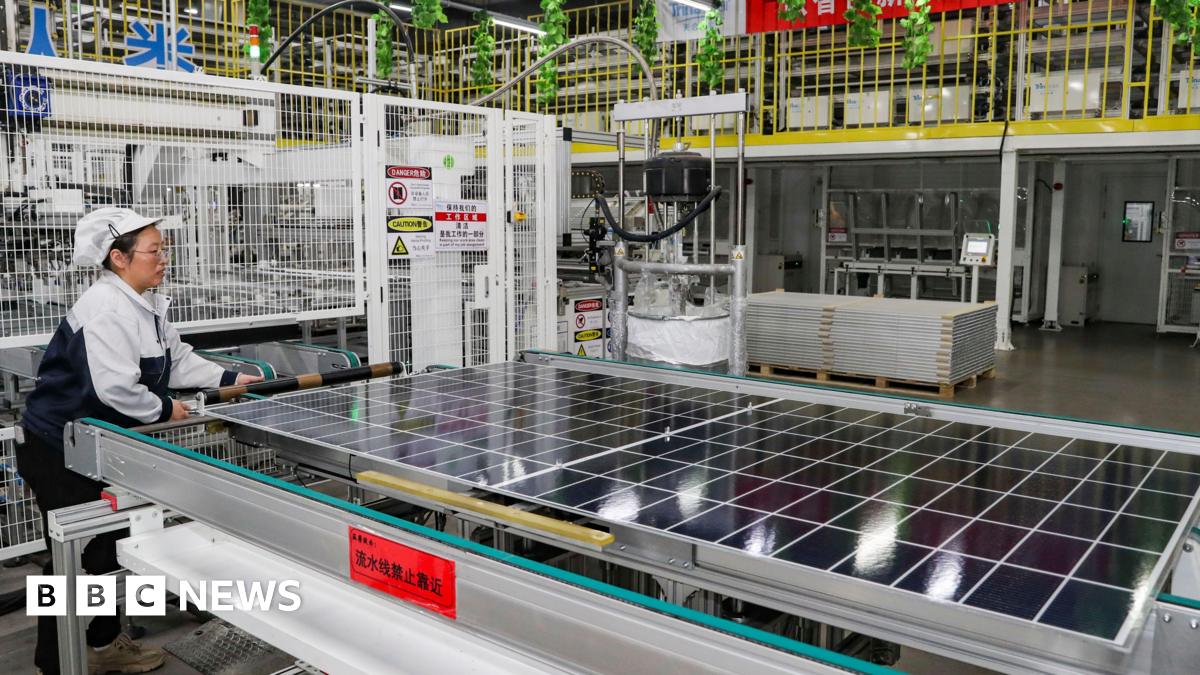3521% Tariffs: US Strikes SEA Solar Industry – A Devastating Blow to Renewable Energy
The US Department of Commerce recently issued preliminary anti-dumping and countervailing duties on solar panel imports from Southeast Asia (SEA), imposing a staggering 3521% tariff on crystalline silicon photovoltaic (CSPV) cells and modules from Cambodia, Malaysia, Thailand, and Vietnam. This decision has sent shockwaves through the global solar industry, raising serious concerns about the future of renewable energy development and international trade relations.
This isn't just a minor trade dispute; it's a potentially catastrophic blow to the rapidly expanding renewable energy sector, particularly in SEA, a region heavily invested in solar power generation. The implications are far-reaching and demand immediate attention.
A Deep Dive into the 3521% Tariff
The exorbitant tariff, levied under accusations of circumventing existing tariffs on Chinese solar products, aims to protect domestic US solar manufacturers. However, critics argue that this protectionist measure will ultimately stifle global efforts to combat climate change and harm consumers through higher energy prices.
- Circumvention Allegations: The Commerce Department claims that Chinese solar companies are evading existing tariffs by shifting production to factories in Cambodia, Malaysia, Thailand, and Vietnam. This assertion is hotly debated, with many arguing that the complexities of global supply chains make such a direct link difficult to establish.
- Impact on SEA Economies: The tariff directly threatens thousands of jobs in the SEA solar manufacturing sector and undermines significant investments in renewable energy infrastructure. These countries have positioned themselves as major players in the global solar market, and this decision severely undermines their progress.
- Global Supply Chain Disruption: This move throws the already strained global solar supply chain into further disarray. The increased cost of solar panels will likely lead to project delays and cancellations worldwide, hindering the global transition to cleaner energy sources.
Beyond the Numbers: The Bigger Picture
The 3521% tariff is more than just a trade dispute; it's a significant setback for the global fight against climate change. The increased cost of solar energy will make it less competitive with fossil fuels, potentially slowing down the much-needed shift towards renewable energy sources.
- Climate Change Implications: Delayed renewable energy projects directly translate into increased greenhouse gas emissions, further exacerbating the climate crisis. This protectionist measure undermines international cooperation on climate action.
- Consumer Impact: Higher solar panel costs will eventually translate into higher electricity bills for consumers, impacting affordability and access to clean energy.
- Geopolitical Tensions: The tariff highlights increasing trade tensions between the US and other nations, potentially destabilizing global economic relations and harming international collaboration.
What Happens Next?
The preliminary tariffs are subject to a final determination later this year. Industry groups and governments are expected to challenge the decision vigorously, arguing that the evidence does not support such a high tariff. The outcome will have significant implications for the global solar market and international trade. The future of solar energy in SEA, and potentially worldwide, hangs in the balance.
Call to Action: Stay informed about developments in this case. Follow reputable news sources and industry publications for updates on the final determination and the ongoing impact of this significant decision. Contact your elected officials to express your concerns about the impact of this tariff. The fight for a sustainable energy future requires global cooperation and a balanced approach to trade policy.

